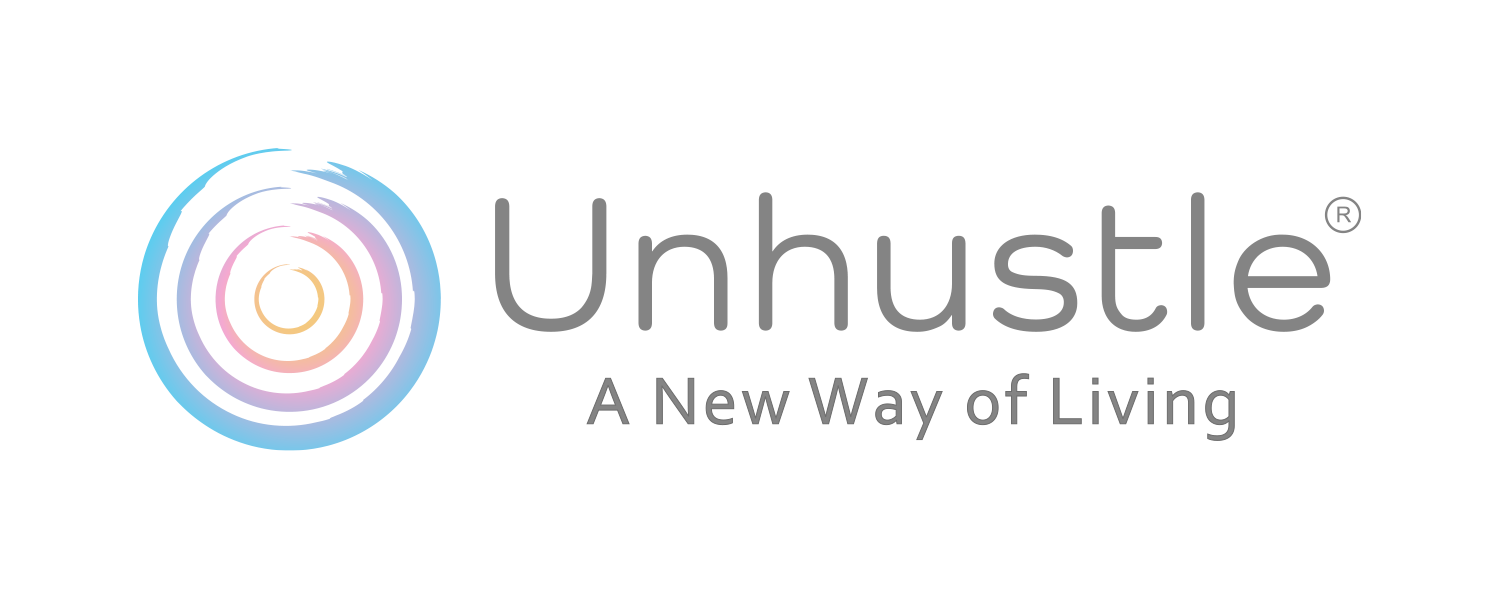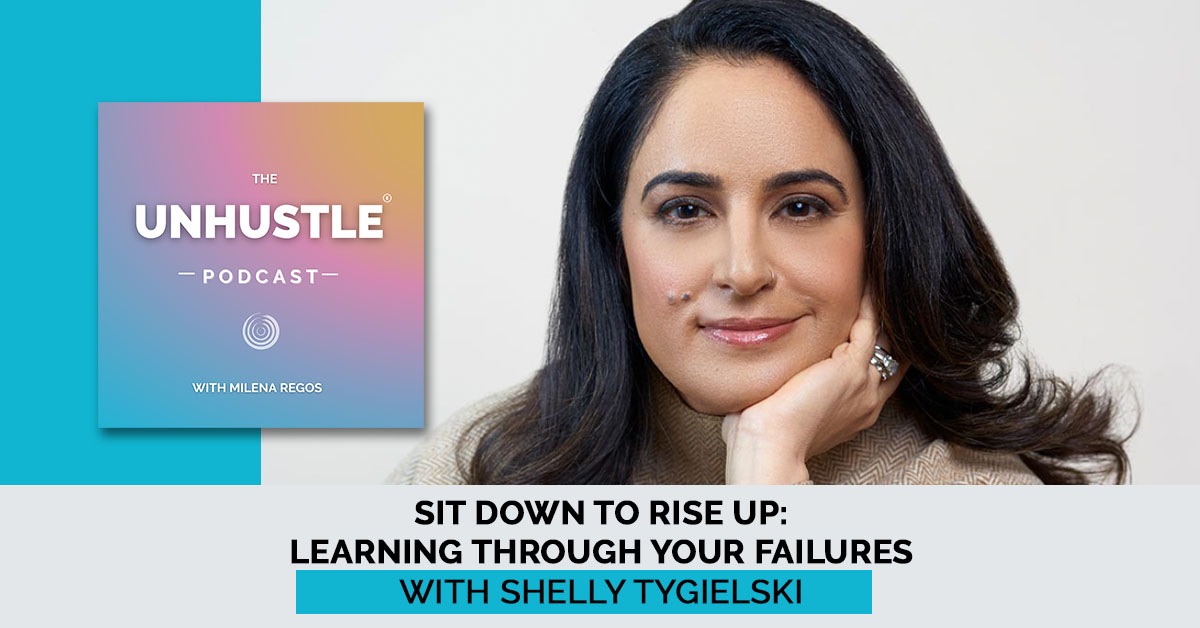

In order to rise up, you have to stop forcing yourself into something you’re not and find what you’re really passionate about. You also need to take care of yourself and look for that community that will help you find success. This is what Shelly Tygielski did. Shelly quit her job as a corporate executive to spread positivity in the world, which she learned to harness through self-meditation. Shelly is the Founder of the global mutual aid movement, Pandemic of Love and the author of Sit Down to Rise Up: How Radical Self-Care Can Change the World. Join Milena Regos as she talks with Shelly about her career-defining journey.
—
Listen to the podcast here
Sit Down To Rise Up: Learning Through Your Failures With Shelly Tygielski
Shelly Tygielski Talks About Hope For A New Order, How To Build Resilience, Living A Life Centered Around Intentions, And Lessons Learned On The Road To Success
Milena [00:00:01]: I am honored to be talking to Shelly Tygielski, a mindfulness teacher, community organizer, philanthropist, author, self-care activist, former corporate executive, skater girl and mind ninja. Shelly spent nearly 20 years in Corporate America, holding various executive positions until she decided to stop following the expected path, and start following her life-long passion for mindfulness and meditation. I’m honored to have this conversation with her, as well as talk about her book, Sit Down to Rise Up.
—
Milena [00:01:30]: Let’s kick it off. I have not read any of the other podcasts because I try to keep it different. I do have the questions from the publicist.
Shelly [00:01:40]: Ask whatever you want.
Milena [00:01:42]: I’m going to ask you whatever the hell I want anyway.
Shelly [00:01:44]: That sounds good, whatever works.
Milena [00:01:46]: I really appreciate you taking the time with me because I’m such a small fish compared to the people you’re talking with.
Shelly [00:01:50]: It’s great. I’m so happy about it.
Milena [00:01:51]: What grabbed me in your story about 2/3 of the book is how you left your unfulfilling career to do something that your heart desires. Let’s talk about agency and what showing up means because I feel like that is such a hard thing for people, especially with the Great Resignation, burnout and all these things. I see these every day when I talk to people. They’re like, “How do I take this leap of faith? How do I take the agency in my life? How do I go past that fear and find that courage?” How did you do it?
Shelly [00:02:33]: It was not magic at all. People only tend to look at that one moment where you left, and they don’t look at everything that went up to that precipice or that moment before you took that leap. They don’t look at how you analyzed how you were going to get there and how you stood at that edge for a very long time. There are a lot of factors that go into it, and in my specific case, I couldn’t just quit my job and say like, “The hell with it, I don’t like this job. I’ll figure it out.”
Certainly, if I was in my early twenties, didn’t have a son that was about to head to college, and a mother that we help support, obligations and mortgage, and everything else that comes with this life that we get saddled with or we buy into. I couldn’t just quit my job because there were too many people depending on me. They were people that I cared about and people that I wanted to make sure that we were okay.
That’s where I was caught in misery for so long because I was fulfilling my duties or what I felt were my obligations in life, but the yearning to do something else was really strong. As I was still working and running a company, I started to feel this longing for community. I felt very much alone or isolated more than I had in previous years. I always had a community of friends, but I always also found community at work. When you’re the big fish or the person at the top of the food chain, it’s very hard to create those connections at work because everybody works for you. The relationship is very different.
I started to feel like I was missing reconnecting with myself or familiarizing myself with what was going on inside me. I inherently knew from a twenty-year meditation practice that I needed to pause and become more self-aware of what was going on, or what was this agita that I was feeling. I started to show up for myself. Before I could show up for anyone else or take a leap of faith, I got quiet, and when you get quiet, things get pretty loud very quickly when dedicating yourself to getting quiet.
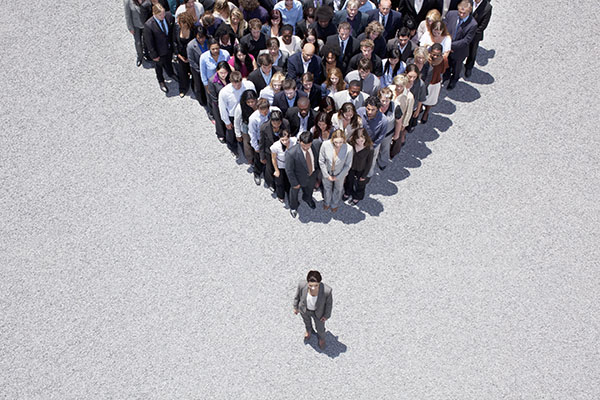

I sat on the beach on Sunday mornings to meditate in Hollywood, Florida. I was longing for other people to commune with, so I invited a few girlfriends to come to meditate with me. This was in November of 2015. There were twelve of us, and within a few short months, there were hundreds of us. By May of 2016, there were thousands of us.
Milena [00:05:34]: That’s a brilliant story, but I want you to tell the story of how you showed up that day when there was a complete storm outside.
Shelly [00:05:47]: People think, “November in Florida must be so beautiful,” but storms in Florida are brutal. Even summer storms are hard. I’m not necessarily talking about hurricanes. Sometimes, it’s like a rainstorm, but the raindrops are the size of golf balls. There’s no way you can run from point A to point B without getting completely soaking wet. It comes down in a minute. It’s like the flood gates are open completely.
That Sunday in November that I invited my girlfriends to come to meditate with me was supposed to be very cloudy and overcast. It was definitely going to rain at some point. It was one of the windiest days. It was a 16, 17, 18, or 20 miles an hour wind. You can’t sit on the ocean or on the beach when there’s wind because the sand is going to start hitting your face. I wound up sitting in the parking lot with patches of dirt under sea grape trees instead.
I remember waking up super early to get down to the beach. My husband was like, “What are you doing? Are you still going? Look at the weather outside. It looks like there’s a Category 1 hurricane outside.” I was like, “I’m still going.” He said, “What if nobody shows up?” I’m like, “I’m going to show up for myself. That’s the whole point. Whether or not somebody shows up is not the point. I’m showing up for myself. This is something that I need to do for myself.”
Twelve people showed up, which was fantastic. We realized that if we can meditate through this storm, we can meditate through anything in life. It was a beautiful metaphor for us. It planted that seed of like, “Let’s continue to meditate.” Understand, I was still very much running the company. That Monday rolled around and I still went back to work. I was living this double life from November 2015 up until I resigned in July 2016. During those months, I very much still had a fiduciary responsibility to the company that I worked for.
[bctt tweet=”Things get pretty loud very quickly when you dedicate yourself to getting quiet.” username=””]
People would come up to me after meditation class. I would lead guided meditations. I would give a Dharma talk. We would have popular music that was everything from Pink Floyd to Buffalo Springfield to Bob Dylan to the Pixies. It was all over the place, but the songs all were thematic about presence or happiness. It had meaningful lyrics to them. People would come up to me on Sunday mornings after meditation, depending on what came up for them. They would share stories with me. They would hug me, and we would cry and commune together.
Oftentimes, a lot of different people would come up to me and ask, “Where can I see you teach again? Do you have classes or workshops? Can you come to speak at my law firm where I work or at this place or that place?” I would look at them like they were nuts. I would be like, “What are you talking about? This isn’t my job. This is something I do on Sunday mornings. I have a responsibility. I’m going to work on Monday,” but what became increasingly more and more clear is that every Monday as I was driving to work, I felt heavier, less motivated and very depleted. By Sunday night, I was feeling that already, and I knew I was in the wrong place.
I also talk in the book a lot about how for my whole life, I’ve always loved this very goal-oriented life. Everything was already centered around this goal like, “I want to run a company, and I’m going to be a CEO by the time I’m 40. I’m going to graduate with honors, and I’m going to go to an Ivy League school.” Everything was mapped out. Through hard work and sheer determination, I was able to claw my way sometimes to those places that I thought were what I wanted to do or who I wanted to be.
When I ultimately got there, especially during that last six-month period while I was teaching on Sundays and running this company, I felt more and more that it was the wrong thing. I was like, “Is this what I’ve been working my whole life to try to get to? Is this the pinnacle? Is this as good as my life’s going to get?” That’s pretty damn depressing. I knew I had to do something. My family, my son and my husband were pushing me on a daily basis as well because that misery is never self-contained.
Milena [00:10:28]: Wasn’t your son the one that pushed you? I remember reading something in the book.
Shelly [00:10:38]: My son was fourteen at the time and he had been to a few of my meditation sessions. Sunday mornings are very hard for teenagers to wake up, but once in a while, he would come to those classes. He would hear me talk about concepts of letting go, having fear and being brave, all these big, abstract concepts. I had gotten home from work one day. There was terrible traffic. I was in the car probably for two and a half hours trying to get home, which would normally be a 40-minute drive. I finally made it through the front door, and he was already in his pajamas, having his dinner at the kitchen table.
I brought all that residue with me from work and from the traffic. I was agitated and angry. It was like walking to the door and you’re a cloud of dust or a storm. He looked at me as I was complaining about my day. He said, “Do you know what the happiest day of my life is going to be, mom?” I said, “What?” I thought, for sure, he was going to say, “When I get out of this nutty house that I’m growing up in,” but he said, “When you quit your damn job and start taking your own advice.”


Milena [00:11:58]: That’s so powerful though. Sometimes, we need that external push or reality check.
Shelly [00:12:06]: I was talking from both sides of my mouth. I was great at giving advice to other people and telling them, “You should do this. You should follow your bliss.” It was like when you read the articles in the paper and it says, “The five ways to do this. The three ways to do that.” We all know that’s not the case. He heard me speaking to people and telling them how they should do what’s in their hearts, and yet, here I was, the person giving the advice, that was doing the opposite. He called me out on my shit, and I was like, “If my son could see it, then I need to do something.”
This is something I didn’t include in the book, but it’s important because it yields back to the whole concept of having community. One of the women who would often come to the beach sessions lived very close to where we would gather. I happened to have known her for many years because, believe it or not, many years earlier, I used to work at her insurance firm. She had one of the largest insurance firms in Florida. It was a summer job. We have a friend in common, and my parents knew her somehow, so I wound up getting a summer job there when I was in middle school or maybe in high school.
Over the years, we would bump into each other and keep in touch. She started coming to the beach because it was very close to her house. She started coming every Sunday morning. We became friends. She would come to retreats that I would hold in Nicaragua and other places. I would complain to her as well because as an entrepreneur, she also understood the angst and what I was feeling.
She invited me and Jason, my husband, to brunch after meditation. She said, “Come to my house. We’ll walk over. We’ll have brunch together.” We agreed and we went over there. It was almost like an intervention. We all need friends like this. She goes, “I need to understand. I want to ask you this in front of your husband. Is he stopping you from doing this?” She was almost trying to make sure that I wasn’t being held, hostage. My husband was like, “No, I want her to quit. I’m supporting her in this endeavor.”
She looked at me and was like, “I don’t understand. What are you doing?” I said, “It’s not enough for him to want. When I look at my financial status and how much I have to pay to this school, to this insurance company, etc., it’s not feasible for me to quit because, within six months, I’ll have to sell the house or do this if I don’t succeed. I don’t even have a game plan. I don’t even know what I’m quitting for.”
[bctt tweet=”Show up for yourself first and foremost before you could show up for anyone else.” username=””]
She said, “Here’s the deal. I have this company and I’ll always need a person like you. I can’t afford to pay you what you’re probably getting paid now, but I’ll pay you X amount of dollars, and you can come to me anytime you want, whether it’s in 3 months or in 6 months. Just know that you have a safety net and that I’ll always hire you and you’ll have a place to land.”
That gave me the safety net that I needed. That was one component of it. The other component is that she said to me, “Have you written a letter of resignation yet?” I said, “No.” She said, “You need to write it and you need to date it for the future. Pick a date.” I said, “Okay,” and I picked a date. It was in August 2016 or something like that.
She said, “If you don’t tender that resignation by that date, then you never have the right to complain about your job to me again, and I’m rescinding my offer to give you a job.” She lit the fire and did this in front of my husband. I was like, “This is for real.” I went through the exercise of writing the letter. As we know from studies in psychology, writing things down helps. It makes it tangible and real. The minute that I wrote this letter of resignation and had it in my back pocket, so to speak, I started to think about it in a much more tangible and clear way like, “I have X amount of time until I have to turn this letter in, so I have to figure things out pretty quickly.”
The timeline accelerated. I wound up turning in that letter of resignation a month before I meant to turn it in because I was ready at that point, but it wasn’t until I had these key elements, communal support, a safety net, and also an understanding of at least a direction of what I thought I was going to do, which by the way, wound up being completely not the direction of anything that I’m doing now, but it still was something that I needed at that moment.
Milena [00:16:59]: That’s a great story, and thank you for sharing it. I wonder how much of the safety net, which is what a lot of people are concerned about, is the financial aspect of things. That’s not realistic for a lot of people. Not everybody has got a friend that says, “I’ll hire you at any time,” so there’s a huge fear in this. They’d be like, “I want to quit my job or pivot careers, but I don’t have a safety net.” From your perspective then, what’s left when you don’t have a safety net?
Shelly [00:17:26]: What I’ll tell you is that I knew without a shadow of a doubt that there’s no way in hell I wanted to work at her firm because I knew that A) Culturally, it wasn’t for me, and B) It would have been a failure. It’s like putting the tail between my legs to go work there. When I say safety net, it was also like the antithesis of that as well for me because I was like, “There’s no freaking way I could go work there ever. I have to succeed because I don’t have a choice.” People need to understand that.
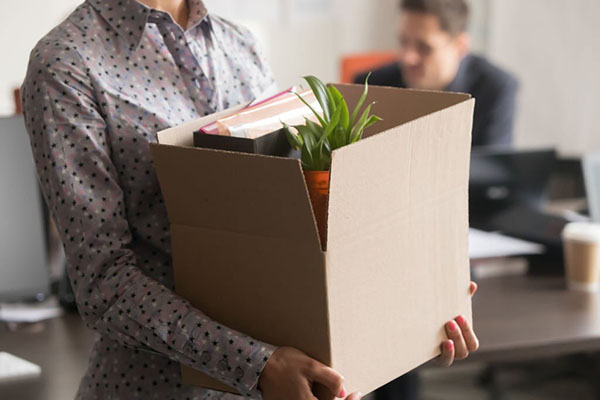

I do talk to a lot of people who have quit their jobs or are quitting their jobs now, and many people who are much younger. Maybe they don’t have as many responsibilities. I’m in favor of taking calculated risks in life, as many as possible. I’m not saying that I don’t show up. I show up for things and do things, but I also am very measured and mindful, thinking about, “What’s my plan B, C or D?”
By the way, sometimes in life, my plan B was like, “I’m going to go work at a Starbucks,” because I know that at that Starbucks, they’re going to offer me health insurance, a 401(k), or they’re going to pay me this minimum wage. Whatever your plan B is, it doesn’t have to be this friend who has this company. It could be anything.
I hear different messages because I have heard from different entrepreneurs who have made it big who say things like, “You cannot have a plan B because then you’re not putting it all in on your plan A.” I’m like, “If you’re 25 years old and you’re flying free and solo, and you’re renting a place, then go for it 100%. Do whatever it is that you need to do to succeed,” but for many people, that’s unrealistic because most of us get trapped and saddled with stuff.
A lot of times, stuff that we realize we don’t need in life, the confines of all these prisons that we’ve built around ourselves. That’s not realistic for people. We do need to look to the community and for a plan B and plan C, so that we can at least feel comfortable in taking those risks and changes that may affect other people’s lives around us.
Milena [00:19:49]: I agree. You touched on this and I want to wrap up this question. We were talking before we got into the conversation about you being more nomadic and coming to town where I am for six months, and who knows where else you’re going to go? Your definition of success now, how does that differ from the earlier Shelly?
Shelly [00:20:12]: I’d like to say that I’ve spent the first half of my life accumulating stuff, and I’m going to spend the second half of my life giving it away. I’ve realized that I need a lot less than what I thought I need. I have a new mantra that I’ve been holding steadfast to, especially since the beginning of the pandemic, which is that enough is a feast. As long as I have enough, that’s fine. I don’t need more than enough. From that point, anything that I have an excess of, I can give that away and help elevate other people in my community and my circles of influence. Success for me used to be an accumulation of awards, accolades and recognition, which I thought gave me validation of who I was as a person.
Milena [00:21:02]: I love your quote about validation being for parking and not for humans.
Shelly [00:21:10]: I don’t know that I need that as much anymore. For me, success now lies in the freedom of being able to be who I am unapologetic, say what I want to say, go when I want to go, be where I want to be, and also not be saddled down by stuff, also including debt. You’re keeping up with the Joneses, so you wind up with a house and then a bigger house, and then a car and then a nicer car. Every month, you’re paying the bills, but you’re in this rat race.
[bctt tweet=”Misery is never self-contained.” username=””]
Another quote that I use in the book is from Lily Tomlin which is, “If you’re in a rat race and you win, you’re still a rat.” I realized very much that I was a rat. I was like, “I’ve got to get out of this rat race,” so I thought about when was the freest feeling that I had in my life, and when was the time that I was the happiest in my life as I was reflectively looking back.
What I came up with was when I was in graduate school and when I was working in Geneva for the World Health Organization. Geneva is a very expensive city. I had $2 to my name. I used to take two buses to go food shopping and grocery shopping in France, because the exchange rate was different for the Franc and the Swiss Franc, so I could get more food and ration it for the week.
I was adventurous, but I had no debt. I didn’t have credit cards. I had nothing. I literally had what I had in my wallet, and that was it. I was happy because I wasn’t saddled with this race towards something. That, for me, was why we decided, amongst other reasons, to sell our house, to live debt-free, not have credit card debt and not have two cars. We sold two silly cars that didn’t make any sense, and we bought one car that made sense for us together. We share this vehicle. We’re navigating at this point through life with a lot more wisdom than I had when I was in my twenties.
Milena [00:23:24]: I talk to people all the time about this. People say, “How much is in the hustle being privileged?” I have to say, I came from Bulgaria with two bags of clothes, and I went down the rat race chasing a career and building the American dream for myself. I also came to the realization that it doesn’t necessarily make you happy.
You talk about this in the book about how happiness comes from within. It doesn’t come with the cars, the shoes, the perfumes, and whatever you buy, but how much of that do you think we find out later in life and how much of that are the younger generation, the Gen Z, and the Millennials are realizing? They’re not even in the position to go down the road of buying a house because they have assumed debt and they’re already burned out coming out of school. How much do you think society is changing versus individuals changing society?
Shelly [00:24:23]: You point something out here that has to do with the fact that there’s such a great divide now more than in many generations, pretty much since the steel magnet or since the era of the Vanderbilts and the Carnegies when we had this huge wealth inequity or gap that existed in society. When we started to create laws against monopolies being formed, and in a way, we’ve gotten back to that because we see these trillionaires.
They have these space races to get up into space and to create these Elysium-style things that orbit the Earth only for rich people. My son is on the cusp of Millennial and Gen Z. They see things in a completely different light because I talked to him about this a lot. It’s not part of their American dream. Part of their American dream is not like, “I want to buy a house with a two-car garage and a white picket fence.” It’s very different than the dreams certainly that our parents had and people who immigrated here, and certainly, that you and I had as Gen X-ers.
Their dreams are very different. They realize that they see the trappings that their parents are living in and that things are getting more expensive, but their parents’ wages are not going up. They realize, “This is a lie. We’re living in the matrix.” My son says it all the time. He’s like, “This is not real life. I want a life where I could have a semblance of freedom and never have to feel like I’m strapped down or saddled down by the man or the bank. Nobody has a hold of me, and I always can maintain my sense of agency and free will that isn’t riddled with obligations.” That’s a smart way of thinking. The only way that we’re ever going to maybe change that is if there’s a great redistribution of wealth that happens in this country, and I don’t see that happening for a very long time or maybe not even in my lifetime.
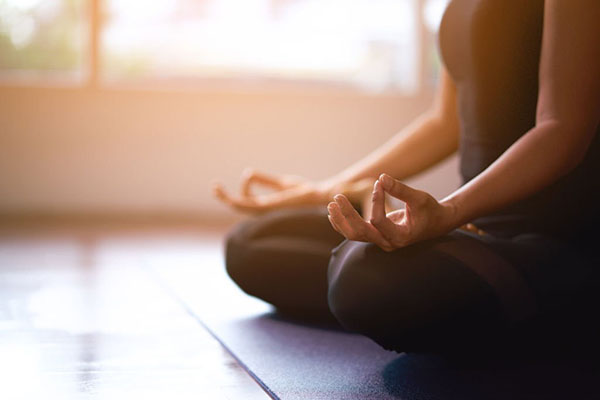

Milena [00:26:47]: I’ve gone down this road of trying to inspire people to change their mindset and perception of what is success and what is it that they want to pursue. Your senses, freedom, flexibility, not having obligations, or as you said, not being trapped in a rat race is what a lot of people want. How they’re going about it though and how realistic that is, is a different question. Let’s talk a little bit about self-care. I know you’re in the midst of a big book launch, congratulations. I see your name everywhere. You’re talking to amazing people, so I’m sure you’re doing a lot of conversations like this. As a self-care activist, how are you taking care of yourself during this time?
Shelly [00:27:32]: I have a self-care plan that is my break-glass-in-case-of-emergency plan. That’s first and foremost. I have a very formalized plan, and that’s what I talk about in the book. It’s how we need to write things down. Things need to be formalized. We shouldn’t leave it because when we feel depleted, we’re very much less likely to do the right thing for ourselves, for our own health, for our own body, and make the right decisions.
The other thing that’s important is that I also have a community. Even as I’m traveling, I have individuals that hold me accountable. I have individuals that are able to provide me with moral support and remove some of those obstacles that I might be facing, whether they’re mental or physical, or any other obstacle that might be preventing me from enacting something, and that’s the key.
The key is that I tend to look at self-care as not just an individualistic pursuit. Most people think that the self extends to me as I exist in this physical body, but you and I both could agree on the fact that the self extends far beyond that. We’re all interconnected, we’re all fields of energy, and we’ve got the ability to extend ourselves far beyond that. When you recognize that yourself is not you in this physical form but very much communal or extends to the people that you’re affecting in your daily life, your community of care, maybe your circles of influence, your family or the people that you work with. Those people are affected by the way you show up as well and by the quality of your presence. If you’re taking care of yourself, they’re affected too and in turn, are able to help you as well.
The way I take care of myself is I meditate every day. That’s non-negotiable. I wish I could tell you that I do work out every day. I think about working out every day, but now I’m in New York City. I’m less of a gym rat. I’ll walk 50 city blocks while I’m here in the city. When I get back to Tahoe, I’ll be snowboarding often and going for hikes. For me, that’s the type of exercise that nurtures my soul and not getting on a treadmill or Peloton. Also, I eat right because I have an autoimmune condition. I’m gluten-free and vegan. I’ve been that way for a very long time. I think that also contributes to my well-being in that sense, and finally, from a mental perspective, having a therapy group.
I’m in a therapy group for mindfulness teachers, believe it or not. For people who are trauma-informed teachers that take on so much, there needs to be a release, if you will. Once a week, I meet with a group of other people that are doing heavy work on a daily basis. We get to support each other, and that’s important too from a mental perspective.
Milena [00:30:27]: You talked about community a couple of times. I want to go a little bit deeper into that because it’s so important to everything we’ve talked about so far. We’re defining success and self-care. You showed up and started this community with twelve people, and then you grew into a bigger community. I love your idea about the Pandemic of Love, and we can get into that. I want to talk about some unusual stories from there. The power of community, especially now when we’re still at home, still isolated and still lonely, what does that look like on your end? How do you form that community? How do people get into it? How do people keep each other accountable? Is it a Facebook group?
[bctt tweet=”Take as many calculated risks in life. Do things in a very measured and mindful way. ” username=””]
Shelly [00:31:11]: It could be anything. Think of it like you were going to start a book club. It can be something as simple as that. It could be any type of affinity group, whether it’s a book club, a walking club, a running club, or people who want to clean the beach together, whatever it is. Even if it’s virtual, that’s fine too, but the idea is that when you go and you start to think about, “I’m going to create this like a book club.” In your mind, you’re like, “I need to pick a date. We all need to read the same book and be on the same page. I need to buy these snacks and have a venue, forum or platform to discuss a book together.”
In your mind, you already know the steps if you were going to plan a birthday party, dinner party or what have you. Having a community of care is not different from that. It’s similar to everything else you do in the normal course of your life. It’s just a little bit of a different blueprint. Rather than having that book, what you’re doing is you, first and foremost, as the individual, are finding a self-care template that works for you. You can Google for self-care templates online and there are thousands. Usually, people will ask me, “Can you recommend one?” I’m like, “No, because everybody is different. Some people like Excel spreadsheets, some people like to draw, and some people like visual things because they’re visual learners. Some people want charts and graphs. Everybody’s different. You will find the right one for you.”
There are many different PDFs and templates you can download. Find a template that resonates with you, sit down, and take the time to fill out your self-care plan and identify, “Who are my go-to people? What do I need to do to nurture my mind, my body, my spirit, my soul, etc.?” They help you drill down these prompts and figure out exactly what it is that is going to comprise your self-care plan. It doesn’t mean that these are things that you have to do all in one day or even all in a week. These are things that you can do, especially in the case of an emergency, so to speak, when you’re feeling depleted.
The next thing that you’re going to do is you’re going to identify the obstacles. You’re going to say to yourself like, “What would prevent me from doing these things? Is it training, money, time, space or equipment? Why wouldn’t I do these things on a regular basis?” Once you identify that, then I would say like a book club, you find a few people or even start with one, having a self-care buddy.
Whether they’re in your place of work, an acquaintance, a neighbor or somebody that’s geographically close to you, have them do the same exercise that you did, and see where this barter can start to form accountability, but also of, “Do you need a treadmill? I have a treadmill in my house. You can come to use it every day. Do you need this? I can do this for you. Don’t you have time? I can babysit your kid for an hour a week while you do that.”
Slowly, you start to expand this group. It always works out through word of mouth because what happens ultimately is that I’ve found, especially amongst women who do this, there’s something that clicks in the way that we nurture others and that we’re caretakers. Now, this allows us to be on the flip side of that and become self-caretakers too, which is pretty incredible. It makes it okay. It’s a community where you suddenly don’t necessarily need to ask for help because people are asking you, “What can I do for you?” Also, you’re asking others, “What can I do for you?” It’s this beautiful exchange of goods, services and time.


I call it a redistribution of wealth because I define wealth in different ways, not just financial. Somebody’s time can make you very rich. There are many different ways to define richness and health. The wider your net starts to grow or this community starts to grow bigger the more exchanges, and equity starts to build this beautiful balance of exchange of goods and services where we take care of each other, and we build these safety nets.
Milena [00:35:37]: You have a unique ability to start these little ripples because I read in the book you’ve done it quite a few times. You have the knack for it, for sure, but what you’re saying is that everybody can do it, and these little ripples turn into bigger waves eventually.
Shelly [00:35:53]: Everybody can do it, and that’s the point. When I talk to most people where they stopped short or where there’s a failure to launch in life in general, but certainly, with things like this, is that they’re paralyzed by the analysis of fourteen steps ahead. In their mind, they’re playing chess and they’re thinking, “If I do this move fifteen moves from now, this could happen,” so they never make that move. They’re just paralyzed. I don’t think fifteen steps ahead. I think like, “We’ll figure it out when we get to that fifteenth step. I’m going to build the plane as I learn to fly the plane. I can figure everything out. If I fail, it’s not a failure. It’s a lesson that I’m going to get right back up and try a different way.”
Where people get stuck is that they’re afraid to fail, certainly, but also, they’re thinking too large. With the Pandemic of Love, for example, people think, “You started this global organization. How amazing.” I’m like, “I started a mutual aid organization for my community in South Florida that then became a global organization.”
Milena [00:37:05]: How many people did you have in your community back when you started the Pandemic of Love?
Shelly [00:37:10]: We had 15,000 people at that point that were regulars or on our mailing lists, but it started from twelve people. People see the end game. They don’t see the twelve people getting microdermabrasion from the sand on a blustery morning in November 2015. They’re not seeing that. They see a community of 15,000 people.
Milena [00:37:33]: From a community of 15,000, now you have over 2 million people in the Pandemic of Love.
[bctt tweet=”Things need to be formalized, not guesswork, because you’ll feel depleted.” username=””]
Shelly [00:37:38]: We’ve matched over 2 million people at this point who have transacted roughly $60 million amongst them directly, which is amazing. We’re in sixteen countries. We have 280 communities and have close to 3,000 volunteers, which is pretty incredible, and it’s all run on volunteer grassroots. Nobody gets paid a salary. There’s no overhead, no fees and no bank account. The Pandemic of Love is not a 501(c)(3). We’re not a nonprofit. We’re a nonprofit disruptor. The idea here is that we recognize that just purely based on love, kindness, and this notion of community and taking care of each other is what can help to create new systems to replace the systems that we’re trying to dismantle that are not working in this country.
Milena [00:38:47]: It’s an awesome initiative that you did. Congratulations for putting in the extra effort and showing up for that initiative. What’s one interesting story from the initiative that resonates with you the most?
Shelly [00:39:01]: I share a cool story in the book, but I’ll share a different story with you. I’m going to share this story with you of Marshall. Marshall was an older gentleman in his late 60s or early 70s. He is still working in the construction industry in a smaller town in North Carolina outside of Raleigh, Durham. He lived there his entire life. He was still working during the pandemic, but then he tested positive for COVID-19. He couldn’t go to work. As he wrote in his letter to us, he said, “If you don’t work, you don’t get paid.” He maybe had a week or two extra weeks of savings, but not a great deal of money to be able to say like, “If I take a month off, there’s not going to be an effect on my life. It won’t be a stressor.”
His daughter saw us on the Kelly Clarkson Show and said, “Dad, you should fill out this form for this organization, Pandemic of Love.” She gave him a link and he filled out a form. We don’t have a community near where he was living. We wound up connecting him with people who we call anywhere donors. They are people who are anywhere willing to help anybody anywhere.
We connected him to a young man named Jacob in San Diego. They connected on the phone. We connected them by email and then they decided to connect on the phone. Jacob asked Marshall, “What do you need help with?” He said, “I need help with rent. I also need help with some groceries. This is what I need.” It far exceeded what Jacob’s capabilities were to be able to help him, so Jacob said to him, “Let me give you money for groceries, and I’m going to see what I could do. I’m going to talk to some people in my community and my friends.”
What Jacob wound up doing was creating this giving circle. He’s going for his Ph.D. in Psychology at UCSD. He reached out to a bunch of his friends. If these people gave $50, we would be able to pay this guy’s rent for the month and get him caught up. While he was figuring all this stuff out, Marshall decided to be prepared for the next conversation. He googled the email address and wanted to know more about Jacob and who he was because he knew he was a student at UCSD, but he wanted to have more talking points because he was so grateful for the help.
When he went to the website, he saw that Jacob was African-American. He said he was so embarrassed about taking money from a Black person as a White man who is super proud from the South. It bothered him that he was feeling this way because he says in his reflective letter to us, “I, my entire life, always considered myself not to be racist. I work in a diverse environment. I work with people who are Black. I work with Hispanic people. I work with all sorts of people, and here I am, having a hard time. My pride will not let me accept this money from this person.”


Jacob kept calling him to say, “I’ve got the money,” and was all excited. Marshall wasn’t picking up the phone. Eventually, Jacob reached out to our chapter, to the woman who introduced the two of them and said, “I’m concerned. Did something happen? I know he had COVID.” He was worried that he was on a ventilator and maybe he died.
Our volunteer got in touch with him, and out of pure shame, Marshall started to cry and apologized. He said, “I can’t accept this money.” A month later, he wrote us this letter because it was sitting with him for a month that he was so taken aback by the fact that he could possibly be a racist. He had this self-examination where he had to reckon with the conditioning of how he grew up and the understanding of who he thought he was.
When push came to shove and it mattered, all of these true colors started to crop up that were frightening to him and were very dark and things that he, for a very long time, was able to start to compartmentalize and say, “I’m not racist as long as my daughter doesn’t marry a Black guy. I’m not racist.” He was a conditional racist.
He wound up writing this very beautiful apology letter to us and asked if we could get back in touch with Jacob and if Jacob would be willing, he wanted to send him this letter. Jacob was willing. As a wonderful person, he was very graceful and generous, I will say, and certainly, also from a psychological perspective, because he’s studying the human mind and the way that we think, was intrigued by everything that has unfolded.
The two of them connected again. They wound up transacting. This giving circle wound up helping Marshall pay for his rent, and they became friends. They still talk to this day. Marshall had an awakening. He had this moment where he had to be shaken and be forced to look in the mirror and confront what was looking back at him, which he didn’t like.
Milena [00:44:34]: That’s a beautiful story. Thank you so much for sharing that. You said that it’s not in the book?
Shelly [00:44:39]: That’s a story that is not in the book. There are other stories in the book about two women who were on different political spectrums right before the election. One voted for Trump and one voted for Biden. We have so many stories, honestly. It’s amazing. There are thousands. I could write a Humans of New York type column with these stories.
[bctt tweet=”Self-care is not just an individualistic pursuit. The self extends far beyond that, and everyone is interconnected.” username=””]
Milena [00:45:02]: I’m sure you will at some point when you settle down with this book. Tell me, what’s your absolute ultimate hope for Sit Down to Rise Up? What would be your celebratory pop-the-champagne moment?
Shelly [00:45:18]: I don’t know that it’s this big moment. It is incremental moments. There were 200 people who got the advanced copy, and many of them took the time to write to me. Now that some reviews are starting to come out, the reaction of people or people relaying back to me what touched them and something that maybe I even forgot that I wrote, to be honest with you at this point. They’re like, “That was so impactful, and this framed or changed the way I think about something.” It’s going to be the accumulation of a lot of little moments. I hope that this book is like an evergreen. It’s something that somebody can even pick up five years from now, and it would still be relevant to the condition of human existence.
Milena [00:46:03]: I’ve got a lot of good stuff out of it. I have a whole bunch more questions that I wrote down to ask you, but I want to be mindful of your time. One of my favorites was Forgo the Guru. Become a Yuru. It’s about being able to find fulfillment, thrive, love, and happiness from within and saying, “The secret to life is to show up.” That was very powerful. You started it with agency and the fascinating story of you getting kidnapped at the age of two. I don’t want to spoil it though for anybody else who wants to get the book and learn more about it. Also, those small ripples led to big changes, inspiring people everywhere and how you started your community and the Pandemic of Love, which was very powerful. Where can people find the book and read about all these stories? Is there a secret launch?
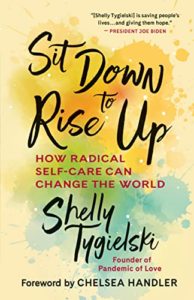

Shelly [00:47:07]: The book is available. It may show depending on when this episode airs as still a pre-order still link, but I know for a fact that the book is in the warehouse of the distributor. That’s good news. We are all facing supply chain issues at this moment, but the book is where it needs to be. Hopefully, we’ll start getting it shipped out soon. People can order it online. They can go to Bookshop.org to support their local bookstores. They can go to Amazon if that’s the route they want to go. It is available on Audible and Kindle as well. By December or late November 2021, it will be available in actual bookshops as well. If you’re looking for holiday gifts, that could be a good holiday gift for someone as well.
Milena [00:47:50]: Thank you so much. I know I can talk to you forever, but I’m going to wait until you come in person to Lake Tahoe, and we can have coffee somewhere.
Shelly [00:47:58]: That would be lovely. I’m excited about that.
Milena [00:48:02]: I appreciate you taking the time to meet with me and talk about your community. I wish you good luck with the book.
Shelly [00:48:10]: Thank you so much. Thanks for having me. Thank you for your platform.
—
Milena [00:48:15]: Thank you so much for reading this episode. I hope you got a lot out of it. Connect with me at Unhustle.com for more help on your journey to creating sustainable live, work, and play design. Feel free to reach out directly to me. If you enjoyed this episode, please leave a review and share it with someone who needs to unhustle. It will help more people to find it. You can download my free eBook to see The 7 Superpowers of High-Performing Unhustlers at Unhustle.com/ebook. Also, tag me on social media or wherever you are, @Unhustle, and let me know what your biggest takeaway was from this show. I will see you in the next episode. Stay healthy and unhustled. Ciao for now.
Important Links
- Pandemic of Love
- Sit Down to Rise Up
- Amazon – Sit Down to Rise Up: How Radical Self-Care Can Change the World
- Audible – Sit Down to Rise Up
- Kindle – Sit Down to Rise Up: How Radical Self-Care Can Change the World
- Unhustle.com/ebook
- ShellyTygielski.com
- @Unhustle – Instagram
About Shelly Tygielski
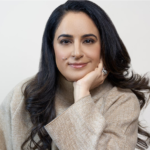

Her journey began by teaching free meditation classes Sunday morning on the sands of Hollywood Beach, Florida. What started as a group of 12 friends blossomed into a community of more than 15,000 in a matter of two years – a diverse mix of souls that proclaimed itself “The Sand Tribe”. The class is always free. The warm welcome is for anyone who shows up. Shelly’s work is built around one simple precept: No Barrier To Entry. She wants everyone to have access to the joys and health benefits of meditation and mindfulness. Not just those with means.
At the heart of Shelly’s practice are fierce justice warriors and social activists. Shelly combines the pragmatic business skills she learned in the corporate world with the tenets of mediation and mindfulness to make the world a better place.
Shelly is deeply involved in offering trauma-informed healing practices to communities affected by gun violence and mass shootings and has led fully funded retreats for survivors and victims’ families representing Parkland, Pittsburgh, Las Vegas, Aurora, Columbine and more. She was featured on the cover of Mindful Magazine® in June 2019 for her work in this space.
When the COVID-19 pandemic hit, once again Shelly rose to the occasion. On March 14th, 2020, at the dawn of the crisis, she posted two simple Google forms online. One read “Get Help” the other “Give Help”. The next morning, she was shocked to find hundreds of requests from both sides of the equation. She began directly matching those in need with patrons willing to help them meet their needs and the Pandemic of Love movement was born. Those few hundred requests grew to thousands; which grew to over 600,000 people matched within six months.
To date, Pandemic of Love boasts nearly 1000 volunteers worldwide and has directly exchanged nearly $40 million in donations. It has been featured on international newsfeeds and network television, including CNN, BBC and The Kelly Clarkson Show. It has enjoyed incredible support from influencers such as Debra Messing, Chelsea Handler, Maria Shriver, Busy Phillips and Kristen Bell. The pandemic of Love continues to match those in need during this crisis directly with patrons who can help through their grassroots mutual aid platform. This work will continue well beyond the pandemic and Shelly is committed to formalizing mutual aid in communities across the world.
Shelly has been an organizer and speaker for the Women’s March. She works to support organizations such as March For Our Lives, Black Lives Matter, indigenous tribes such as the Navajo and Hopi, and other groups committed to social justice and driving real change. In doing so, she’s also seen the toll that activism can take on people. The exhaustion. The let downs. Even feelings of failure and hopelessness. That’s why a big part of what Shelly teaches today is self-care. She believes that – in Audre Lorde’s words – “self-care is an act of resistance” unto itself because the only way to make change is to maintain your energy, health and mental wellbeing. And the only way to achieve that is through the building of communities of care.
Shelly shares her methods of self-care in her upcoming book titled “Sit Down To Rise Up” which will be available in the Fall of 2021. She’s also recorded a series of workshops with Recorded Books, available on Audible, including a series on “Self-Care for Turbulent Times.”
Shelly is a student of the Shambhala Buddhist tradition and is certified in MBSR (Mindfulness-Based Stress Reduction). She is also an in-process certified Search Inside Yourself Leadership Institute (founded at Google over a decade ago) teacher. Her contemplations and lessons shared freely over social media have gained tens of thousands of followers, and she was recently referred to as one of the most “Powerful Women in Mindfulness” by mindful.org.
Shelly holds an undergraduate degree from the University of Miami and a Master’s Degree from Columbia University.
